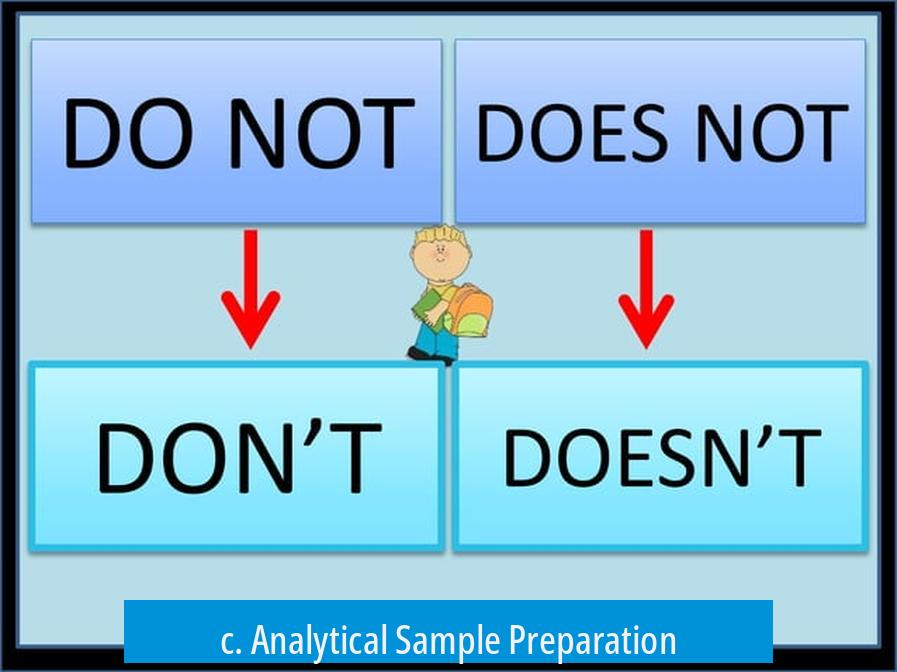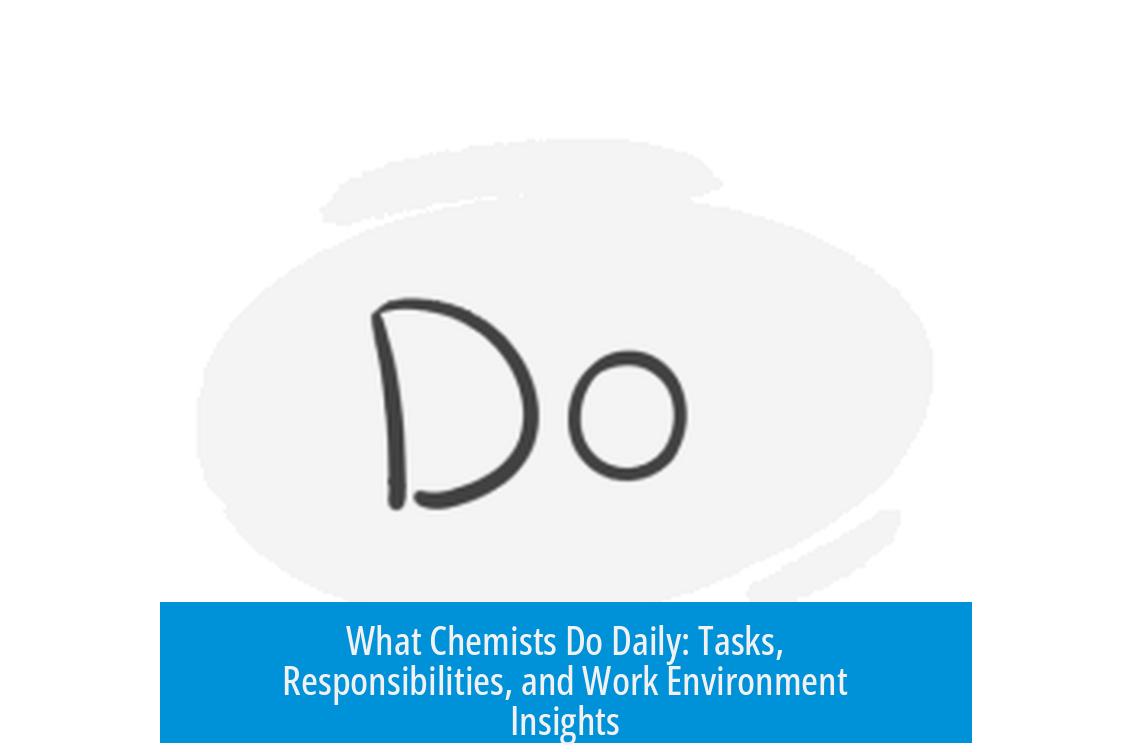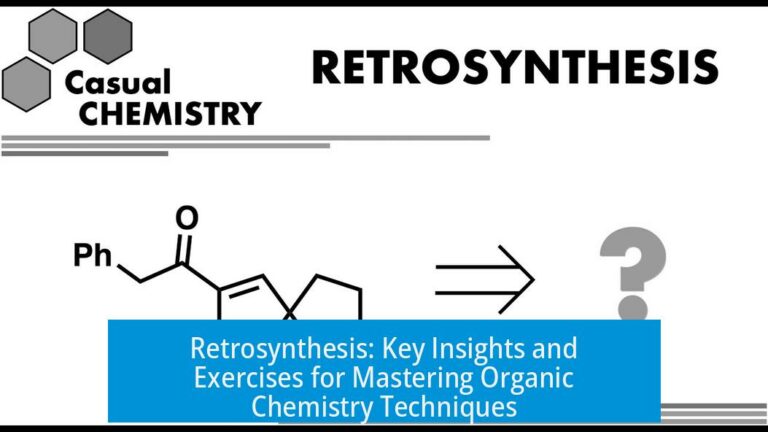What Do Chemists Do on a Day-to-Day Basis?
Chemists engage in varied activities daily, including problem solving, laboratory experiments, data analysis, documentation, collaboration, and compliance tasks. Their specific routine depends on their specialization and work environment.
1. Problem Solving and Research

Chemists regularly troubleshoot experimental issues. When a reaction fails, they analyze the cause and devise modifications to improve outcomes. They extensively review scientific literature to build on previous findings and avoid duplication.
- Troubleshooting reactions and experiments
- Reviewing scientific papers for background
- Formulating hypotheses for tests
2. Experimentation and Laboratory Work
a. Synthesizing and Testing
Synthetic chemists perform daily reactions, monitor progress using Thin-Layer Chromatography (TLC) or Liquid Chromatography-Mass Spectrometry (LC-MS), purify products using chromatography, and analyze compounds with Nuclear Magnetic Resonance (NMR) spectroscopy. New reactions are planned and initiated based on results.
b. Product Development
Product engineers design and test formulations, such as inks, adjusting components empirically to solve problems like droplet formation. They collaborate with manufacturing teams and ensure compliance with safety regulations.
c. Analytical Sample Preparation

Analytical chemists prepare samples, operate instruments like High-Performance Liquid Chromatography (HPLC), Gas Chromatography (GC), and collect data. They adjust methods to optimize results and generate reports for clients or internal stakeholders.
d. Quality Control
Quality Control (QC) chemists test manufacturing batches for compliance with specifications. If products fail standards, investigations are performed. They often write and revise Standard Operating Procedures (SOPs) and train personnel.
3. Documentation and Reporting
Chemists spend a significant part of their day writing reports, drafting protocols, and preparing documentation to meet regulatory requirements and communicate findings. This includes writing research papers, stability protocols for pharmaceutical products, and compliance reports.
- Research and project reports
- Protocols adhering to agency guidelines
- SOP creation and revision
- Administrative paperwork related to safety and regulations
4. Meetings, Collaboration, and Teaching
Chemists regularly participate in meetings to share progress, receive feedback, and collaborate on projects. Seminars are common in academic settings for knowledge exchange. They may also train new analysts or students and manage laboratory activities.
- Project update meetings
- Brainstorming sessions and presentations
- Teaching and grading in academic environments
- Training colleagues on procedures
5. Data Analysis and Interpretation
Chemists analyze data from experiments or quality tests. They process results from tools such as GC-MS, NMR, or HPLC and interpret these to guide decisions and troubleshoot problems.
- Evaluating instrument output
- Reporting findings to managers or clients
- Adjusting experimental approaches based on data
6. Laboratory and Equipment Maintenance
Maintaining instruments, calibrating equipment, cleaning glassware, and ensuring lab safety are daily duties. Chemists verify compliance with safety regulations and manage inventories to sustain efficient lab operations.
- Instrument calibration and upkeep
- Lab environment cleaning
- Safety inspections and audits
7. Project and Personnel Management
Senior chemists often supervise teams, manage budgets, and oversee project progress. They coordinate with departments and external stakeholders to align objectives and optimize resources.
- Supervising lab staff
- Budget oversight and resource allocation
- Regulatory liaison and stakeholder communication
8. Regulatory and Safety Compliance
Chemists ensure products and procedures meet legal and safety standards. This covers hazardous waste management, conducting risk analyses, maintaining documentation for agencies, and training personnel on compliance.
- Waste designation and disposal
- Legal compliance monitoring
- Safety training and documentation
9. Variation by Discipline and Sector
The daily routine depends heavily on the chemist’s field:
| Chemist Type | Primary Daily Activities |
|---|---|
| Synthetic Chemist | Reaction setup, purification, instrumental analysis, reaction troubleshooting |
| Analytical Chemist | Sample preparation, instrument operation, result reporting |
| Quality Control Chemist | Product testing, compliance investigations, SOP writing |
| Product Development Chemist | Product formulation, empirical testing, collaboration with manufacturing |
| Theoretical Chemist | Computer modeling, data analysis, remote research |
| Environmental, Health & Safety Chemist | Safety audits, waste management, regulatory compliance |
| Lab Manager | Lab scheduling, inventory control, supporting teaching, safety enforcement |
| Forensic Chemist | Evidence testing, case reporting, legal testimony |
10. Use of Specialized Instruments and Techniques
Chemists employ various technologies such as GC-FID, Gas Chromatography-Olfactometry, HPLC, FTIR, ICP, Karl Fischer titration, flash chromatography, NMR, and LC-MS. They perform organic extractions with solvents like dichloromethane and hexane for compound isolation.
11. Career and Work Realities
Entry-level chemistry jobs may demand lower pay and focus on technical tasks. Advancement requires experience or graduate degrees. Working in chemistry often involves long hours, both at bench and desk, and requires adaptability. Chemists may transition to teaching, management, safety, or other STEM roles.
Key Takeaways
- Chemists engage in problem solving, experimental work, data analysis, documentation, and collaboration daily.
- Daily tasks vary widely by specialization, sector, and seniority.
- Laboratory work includes reaction setup, purification, sample prep, and instrumentation usage.
- Documentation comprises reports, protocols, SOPs, and regulatory paperwork.
- Chemists maintain lab safety, equipment, and comply with legal and environmental regulations.
- Senior roles add project management, personnel supervision, and budgeting responsibilities.
- Specialized instruments and methods are integral to chemistry work.
- Career progression demands further education, flexibility, and adaptation to various roles.
What kind of problems do chemists troubleshoot daily?
Chemists investigate why certain reactions fail. They analyze conditions and change variables to improve outcomes. They also review existing research to avoid repeating others’ mistakes or to build on prior work.
How do chemists ensure product quality during manufacturing?
They run tests on product samples to confirm specifications. If results fail, chemists conduct investigations. They also write and update standard operating procedures and train analysts to maintain consistency.
What types of experiments do chemists run in the lab?
Chemists design and test new formulations or compounds. They monitor reactions and use instruments like NMR and LC-MS to assess progress. Sample preparation and analytical testing are common tasks.
How much time do chemists spend on documentation and reporting?
Writing reports, protocols, and compliance documents is routine. Chemists summarize experimental data for clients or regulatory bodies and revise standard operating procedures regularly.
What role do meetings and collaboration play in a chemist’s day?
Chemists attend meetings to discuss their projects, listen to others’ research, and plan future work. Team collaboration and one-on-one sessions with managers help shape project directions.





Leave a Comment